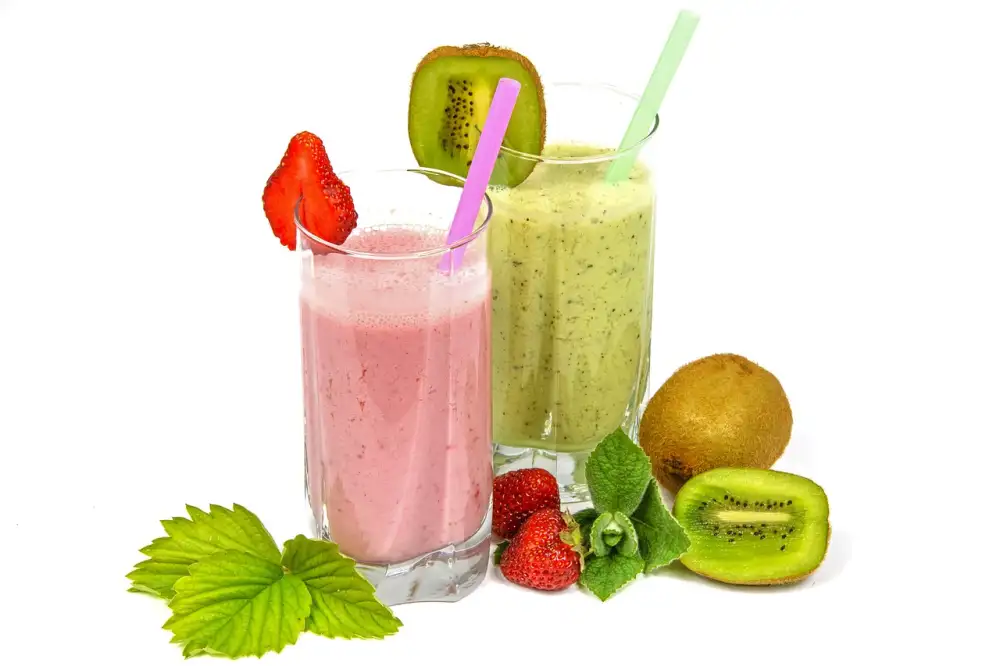The Quest for the Healthiest Energy Drink: Unveiling the Ultimate Boost for Vitality

- Explanation of the importance of choosing a healthy energy drink option
- Factors to consider when determining the healthiest energy drink
- Comparison of different energy drink brands and their nutritional profiles
- Analysis of the ingredients used in energy drinks and their potential health benefits or risks
- Discussion on the role of caffeine and other stimulants in energy drinks and their effects on the body
- Exploration of alternative natural energy sources and their benefits over traditional energy drinks
- Tips for making homemade energy drinks using wholesome ingredients
Energy drinks have become increasingly popular in recent years, offering a quick and convenient way to boost energy levels. However, their impact on health has raised concerns. These beverages are often loaded with sugar, artificial additives, and high levels of caffeine. Excessive consumption of energy drinks has been linked to various health issues such as increased heart rate, high blood pressure, and even potential risks to mental health. It is crucial to understand the importance of choosing a healthy energy drink option that provides vitality without compromising our well-being.
Explanation of the importance of choosing a healthy energy drink option
Choosing a healthy energy drink option is of utmost importance for maintaining overall well-being. Energy drinks, while providing a quick boost of vitality, can also have negative effects on health if consumed in excess or if they contain harmful ingredients. Opting for a healthier energy drink ensures that you are fueling your body with nutrients and avoiding potential risks such as increased heart rate, high blood pressure, and sugar crashes. By making a conscious choice to prioritize your health, you can enjoy the benefits of an energy drink without compromising your well-being.
Factors to consider when determining the healthiest energy drink
When it comes to determining the healthiest energy drink, there are several factors to consider. First and foremost, it is important to look at the sugar content. Many energy drinks are loaded with excessive amounts of sugar, which can lead to weight gain and other health issues. Opting for a drink with low or no added sugars is crucial.
Another factor to consider is the presence of artificial additives and preservatives. These chemicals can have negative effects on our health, so choosing a drink that is free from these additives is ideal. Additionally, considering the source of caffeine in the energy drink is important. Natural sources like green tea or guarana are preferable over synthetic caffeine.
Furthermore, it's essential to assess the overall nutritional profile of the energy drink. Look for drinks that contain vitamins, minerals, and antioxidants to provide additional health benefits. Lastly, considering the portion size and serving recommendations can help ensure that you are consuming an appropriate amount of energy without going overboard.
By taking these factors into account when choosing an energy drink, you can make a more informed decision about what will be best for your health and vitality.
Comparison of different energy drink brands and their nutritional profiles
In order to determine the healthiest energy drink option, it is essential to compare the nutritional profiles of different brands. Looking at the labels can provide valuable insights into the ingredients and their quantities. Pay attention to the calorie content, sugar levels, and presence of artificial additives. Some brands may offer lower calorie options with natural sweeteners or no added sugars. Evaluating these factors will help you make an informed choice for a healthier energy boost.
Analysis of the ingredients used in energy drinks and their potential health benefits or risks
Energy drinks are packed with various ingredients that claim to provide an instant boost of energy. However, it is crucial to analyze these ingredients and understand their potential health benefits or risks. Common ingredients found in energy drinks include caffeine, sugar, taurine, B-vitamins, and herbal extracts like guarana and ginseng.
Caffeine is the primary stimulant in energy drinks, known for its ability to increase alertness and reduce fatigue. While moderate consumption may have some benefits, excessive intake can lead to side effects such as increased heart rate and blood pressure.
Sugar is another key ingredient in many energy drinks, providing a quick source of energy. However, excessive sugar consumption can contribute to weight gain, tooth decay, and an increased risk of chronic diseases like diabetes.
Taurine is an amino acid that claims to enhance athletic performance and improve mental focus. Although it occurs naturally in the body and has some potential benefits, more research is needed to fully understand its effects on human health.
B-vitamins are often added to energy drinks for their role in converting food into energy. While they are essential nutrients, consuming excessive amounts through energy drinks may not provide any additional benefits and could potentially lead to adverse effects.
Herbal extracts like guarana and ginseng are believed to have stimulating properties. Guarana contains caffeine, while ginseng is thought to improve cognitive function. However, the effectiveness of these herbal extracts in energy drinks is still a subject of debate among experts.
It's important to note that the combination of these ingredients in energy drinks can have varying effects on individuals depending on factors such as age, health conditions, and sensitivity levels. Therefore, it's crucial to consider these factors before consuming any energy drink and consult with a healthcare professional if necessary.
Discussion on the role of caffeine and other stimulants in energy drinks and their effects on the body
Caffeine and other stimulants play a significant role in energy drinks, providing the boost of energy that many seek. However, it is important to understand their effects on the body. While caffeine can increase alertness and improve cognitive function, excessive consumption can lead to jitters, increased heart rate, and even insomnia. Other common stimulants found in energy drinks include guarana and taurine, which may have similar effects as caffeine. It is crucial to consume these beverages in moderation and be aware of any underlying health conditions that may be exacerbated by stimulant intake. Always consult a healthcare professional before consuming energy drinks regularly.
Exploration of alternative natural energy sources and their benefits over traditional energy drinks
Exploring alternative natural energy sources can provide a healthier option compared to traditional energy drinks. Natural sources like fruits, vegetables, and whole grains are rich in vitamins, minerals, and antioxidants that can boost energy levels without the negative side effects. For example, consuming a banana or an apple can provide a natural energy boost due to their high fiber and natural sugar content. Additionally, incorporating foods like chia seeds, almonds, and spinach into your diet can provide sustained energy throughout the day. These alternatives not only provide essential nutrients but also offer long-term health benefits that go beyond just a temporary energy boost.
Tips for making homemade energy drinks using wholesome ingredients
One of the best ways to ensure a healthy energy drink is by making it at home using wholesome ingredients. Here are some tips to create your own revitalizing beverage. Start with a base of freshly brewed green tea or herbal infusions like chamomile or peppermint. These provide antioxidants and natural flavors. Add a squeeze of citrus fruits like lemon or orange for a refreshing twist and an extra dose of vitamin C. To sweeten, opt for natural alternatives like honey or maple syrup instead of refined sugars. Finally, enhance the drink with ingredients like ginger, turmeric, or matcha powder for added health benefits. Experiment with different combinations until you find your perfect homemade energy drink recipe!
In conclusion, the quest for the healthiest energy drink is crucial for our overall well-being. By making informed choices, we can prioritize our health and vitality. It is essential to consider factors such as nutritional profiles, ingredients, and potential risks when selecting an energy drink. Exploring alternative natural energy sources and even creating homemade energy drinks using wholesome ingredients are great options. Let's empower ourselves with knowledge and choose wisely for a healthier boost of energy.
Published: 03. 12. 2023
Category: Health



